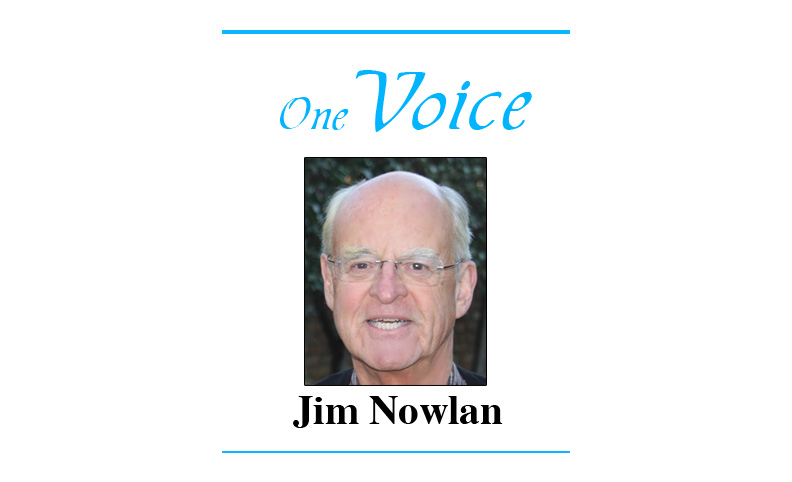
Candidates for one elective office can affect the outcomes for others on the same party ticket. For example, an unattractive, or goofy, candidate at the top of the ticket can depress turnout of the party faithful, thus depriving all candidates down the ballot of their votes. That is what scares the dickens out of Illinois Republican Party leaders, who appear thus far impotent to do anything about such possibilities.
At the top of the 2022 ballot in Illinois is the office of U.S. senator, held by Democratic Party’s Tammy Duckworth, who seeks re-election. I have written here previously, who would want to run against an unobjectionable woman who had her legs blown off while piloting an Army helicopter in Iraq while in defense of her country?
I have not heard of any credible types who are willing, most likely, to fall on their swords in a race against senator Duckworth. This increases the chances that a nut case could file petitions and become the GOP nominee. It has happened previously. In 1986, Illinois Democrats nominated two unknown radicals with good ballot names (Janice Hart and Mark Fairchild) to the State ticket, which assured the defeat of former U.S. senator Adlai Stevenson in his bid for governor.
Next on the ballot for election is governor. The incumbent, JB Pritzker, has more money than Croesus, and is willing to spend it to be reelected.
At this time, there are four GOP candidates:
• Darren Bailey, a folksy, very conservative downstate, anti-vax lawmaker who has the passionate support of the important home school and Christian school network, probably more effective than any GOP network.
• Successful, suburban businessman Gary Rabine (last name pronounced with two “long” vowels), a Donald Trump supporter.
• Paul Schimpf, a retired Marine JAG officer and former State senator from the Metro East St. Louis region, and
• Jesse Sullivan, a 35-year-old, telegenic all-American sort who has made some money in the Silicon Valley, yet trumpets his roots, home, and family in picturesque rural Petersburg.
At present, Bailey appears far ahead of the other three, yet the primary isn’t until late June 2022. I see quite a few Bailey yard signs in my travels around central Illinois. Yard signs spread across downstate are a decent indicator of a strong network of supporters, good organization, and the potential to raise some money.
My insider lobbyist, legislator and political junkie, friends, say the only type who has a chance against Pritzker is one who can appeal to women in the suburbs. In 2018, the six-and-a-half suburban counties around Chicago cast a total of 2.1 million votes; those in the 95 counties downstate cast 1.5 million votes. Surveys report that college-educated women, though not enthusiastic about abortion, strongly oppose (approximately 75%; various polls) overturning Roe v Wade, as a women’s rights issue. The four GOP aspirants are all pro-life.
Then there is the matter of money to go up against “Croesus,” who spent $175 million of his own moolah to win the top State office in 2018. The State GOP lacks two nickels to rub together. So, all political junkie eyes are on billionaire Ken Griffin, who has more money than even “Croesus”, and who has declared he will spend it to beat the governor. But, Griffin’s political people have found no candidate as yet. I am told Griffin prefers newcomers to old politicians.
I think the ideal GOP candidate would be a credible, law-and-order prosecutor (think Jim Thompson in the 1970s), because law and order will be a leading issue in 2022. Suburbanites are scared witless by the violence in the city.
Lacking such, or a consolidation of Sullivan, Schimpf, Rabine, into one candidacy, Bailey wins the primary, at least as of right now. But in the November 2022 general election, Bailey likely would be the darling of downstate, while falling flat in the ’burbs, by winning an enthusiastic 40% of the total vote.
So, a possible doofus at the top, with Bailey just below, could spell disaster for other races down the long ballot, because of depressed GOP turnout. For example, I have an interest in two, important, Illinois Supreme Court races, mostly in suburban districts. But, voters do not go to the polls, or not, because of unknown Supreme Court candidates. Thus, these competitive races, found at the very bottom of the ticket, could be determined at the top of the ballot.
Illinois GOP leaders should get on their knees to top-drawer citizens who might be willing, out of a sense of noblesse oblige, to take on a likely losing U.S. Senate race, and hope that a candidate who can appeal in the suburbs will emerge from the gubernatorial primary.
Jim Nowlan is a former state legislator and aide to three unindicted Illinois governors. A retired professor of American politics, he writes a newspaper column on Understanding Illinois.

